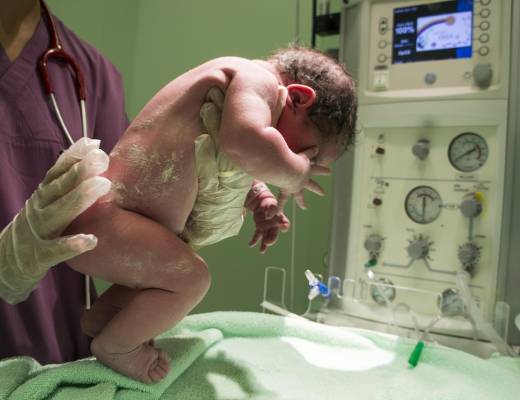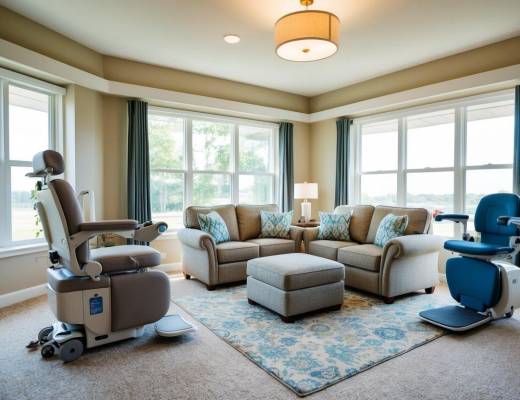The Man Behind the Mission: Dr. Thomas Chen’s Vision for Brain Cancer Treatment
by / ⠀Healthcare / October 16, 2024
Cancer research has made huge strides in recent decades, but some kinds of cancer are still difficult to understand. Brain cancer is one of those, though Dr. Thomas Chen — founder and CEO of NeOnc, Director of surgical neuro-oncology at the University of Southern California (USC), and world-renowned neurosurgeon — is changing that.
“I deal with patients with brain cancer, and even though there are about 18,000 new cases per year of primary brain cancer, it’s still a disease where we haven’t had any significant improvement in survival time,” says Dr. Chen.
“The patients with glioblastoma still only live about 15 to 18 months. That’s true even for public figures diagnosed with it. They had the best that we can give them, and they still pass away,” Dr. Chen says.
Through NeOnc, Dr. Chen has developed a potential game-changing treatment for those with glioblastoma and other inoperable or aggressive brain cancers. It’s an intranasal delivery system, which is essentially a nasal spray that allows cancer-treating drugs to be sent straight to the brain.
Brain tumors are notoriously difficult to treat because oral and injected medications are largely stopped by the blood-brain barrier.
“With nasal-brain delivery, you’re inhaling the aerosolized medication and letting your cranial nerves deliver it to the brain,” Dr. Chen says. “The first cranial nerve is called the olfactory nerve, and that’s the nerve that we inhale from. It’s what lets us recognize smell.”
“The olfactory nerve is very effective for delivering different substances to the brain,” he continues. “We recognize smell because when we inhale it, it gets absorbed by the olfactory nerve and then conducted to our temporal lobe.”
With the nasal-brain delivery system, drugs may also travel directly to the brain. Because there’s no blood-brain barrier to try to get through, more of the medication reaches the tumor — and that almost always results in better outcomes.
That solution might sound simple, but it’s built upon Dr. Chen’s life’s work. Between training new neurosurgeons, operating on patients himself, and conducting medical research at USC, Dr. Chen dedicates innumerable hours to studying brain cancer and trying to improve outcomes for patients.
“One of my jobs at USC, besides operating and treating patients, is developing new technologies that may enable new treatments for these patients,” he says.
“I looked at everything that we have done with neuro-oncology, and one of our problems is just getting the drug or the biologic to the cancer. We’re trying to get drugs or other biologics to the target, and the blood-brain barrier is preventing that,” he continued.
Fortunately, the bloodstream isn’t the only way to get to the brain. “Now, we’re doing what we call nasal-brain delivery,” Dr. Chen says of the new delivery system. “You’re inhaling the medication and letting your cranial nerves deliver it to the brain.”
So far, the new technology is exceeding even Dr. Chen’s expectations in clinical trials. And while it may be his greatest achievement to date, it’s far from the only impact Dr. Chen has made on people diagnosed with cancers of the brain and spine.
Dr. Chen first entered the field of medicine because he wanted to make a difference in other people’s lives. He graduated from the University of California San Francisco School of Medicine in 1988 before beginning his residency in neurosurgery at USC.
It was during that residency that Dr. Chen’s interest in neurosurgery and his interest in oncology began to converge. While still in his residency, he started a PhD in tumor immunology, also at USC. He completed his residency in 1995 and graduated from his PhD program in 1996.
Dr. Chen is a remarkable physician in his own right, but by empowering, educating, and uplifting his students and colleagues, he is making an even greater difference in patients’ lives.
He is a professor of neurosurgery, pathology, and orthopedic surgery at USC’s Keck School of Medicine, and his expertise, guidance, and passion for medicine have helped the institution grow into one of the country’s most respected medical schools.
Dr. Chen credits his success to both his work ethic and the innovative procedures he’s developed. But he doesn’t discount the power of hope — for his team or his patients.
“Hope is so important in patients who are getting treated,” he says. “Patients who are optimistic usually do better. They feel like they can continue their lives. And I think our hope is that this treatment will enable the patients to do that.”






